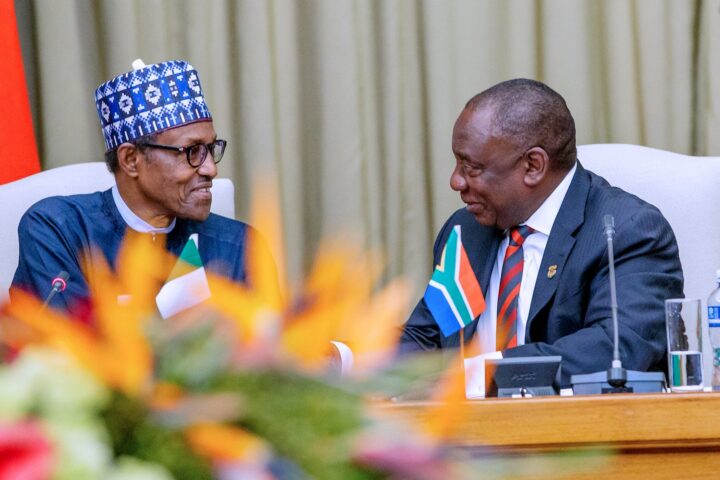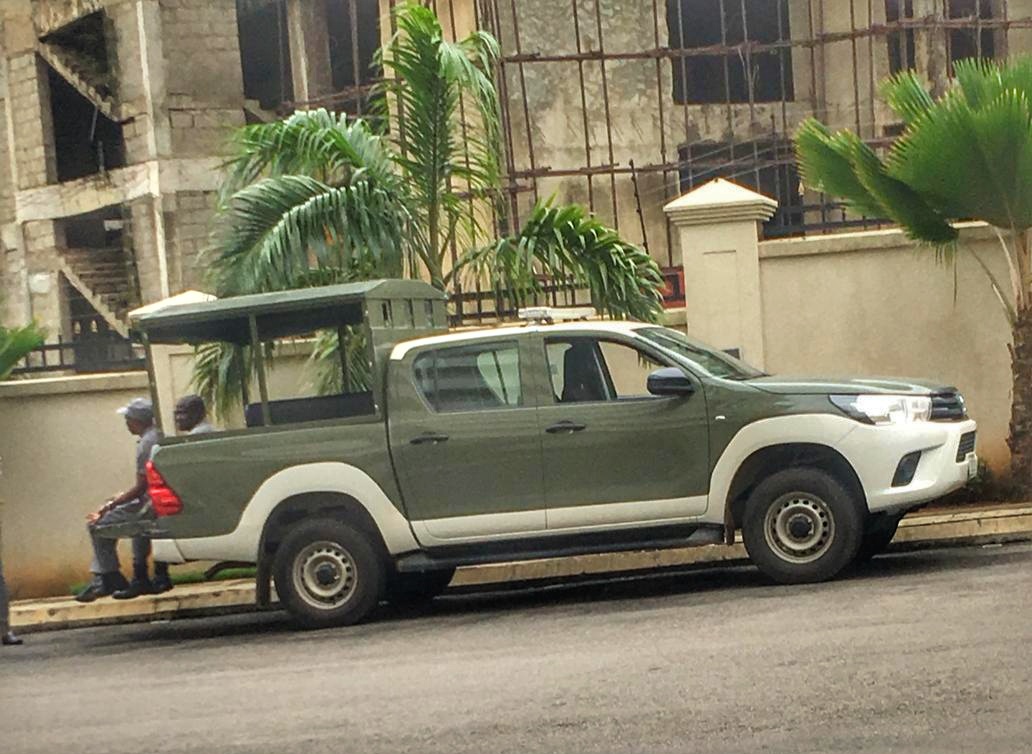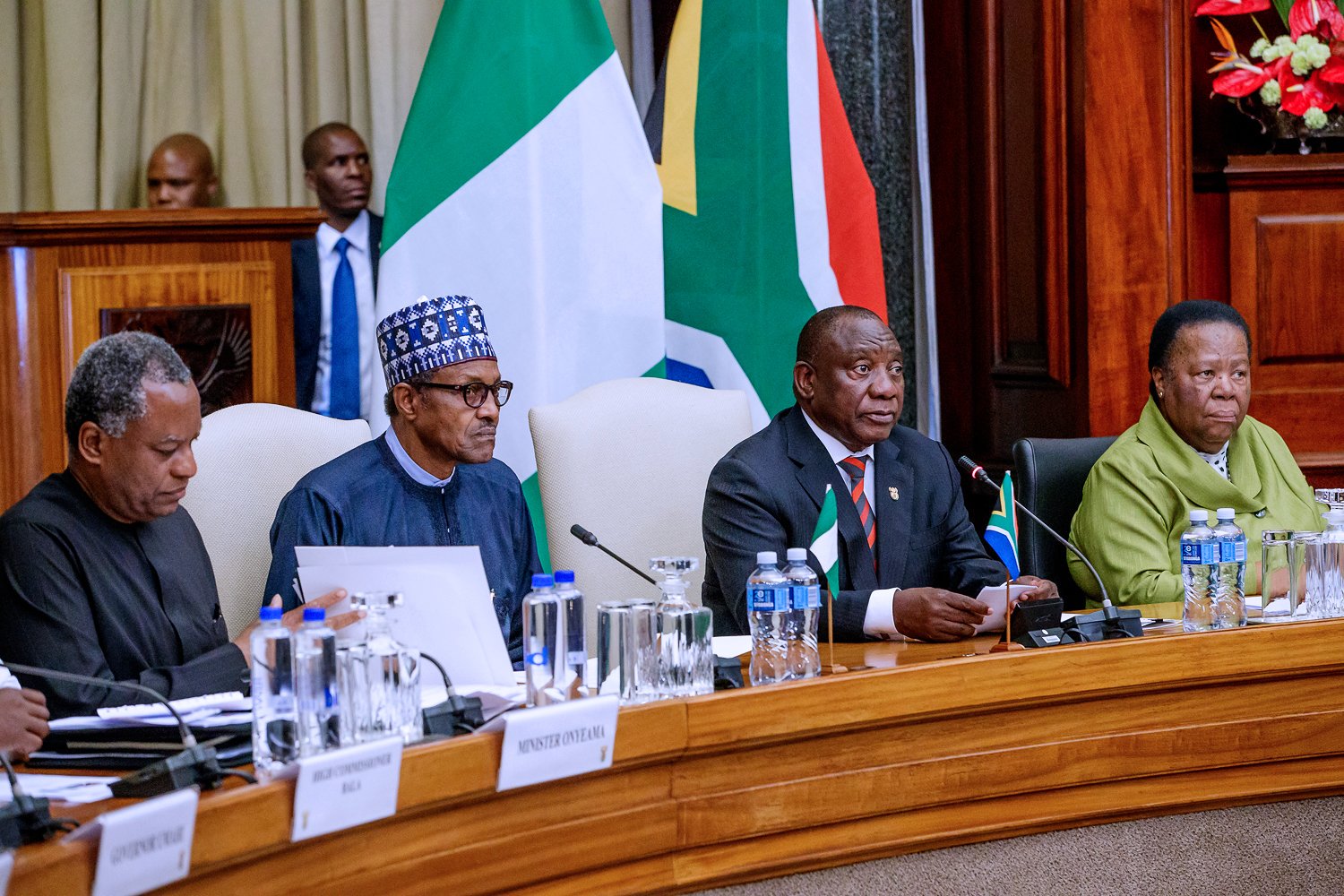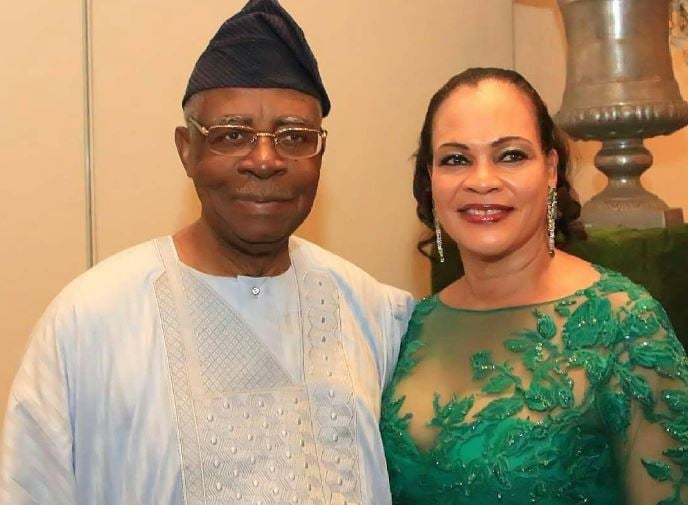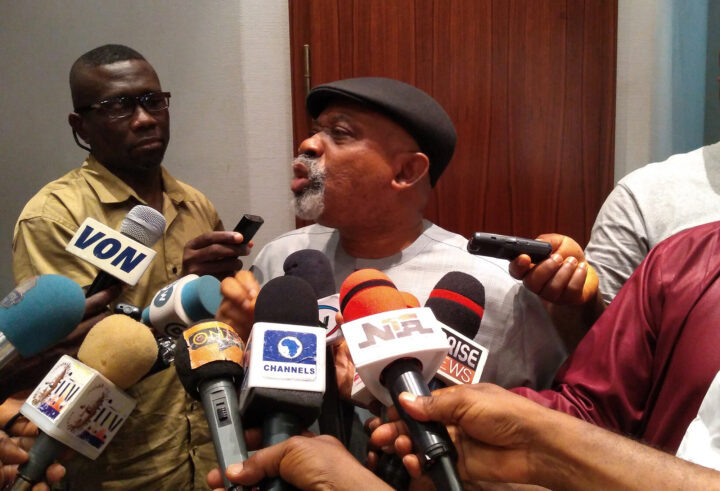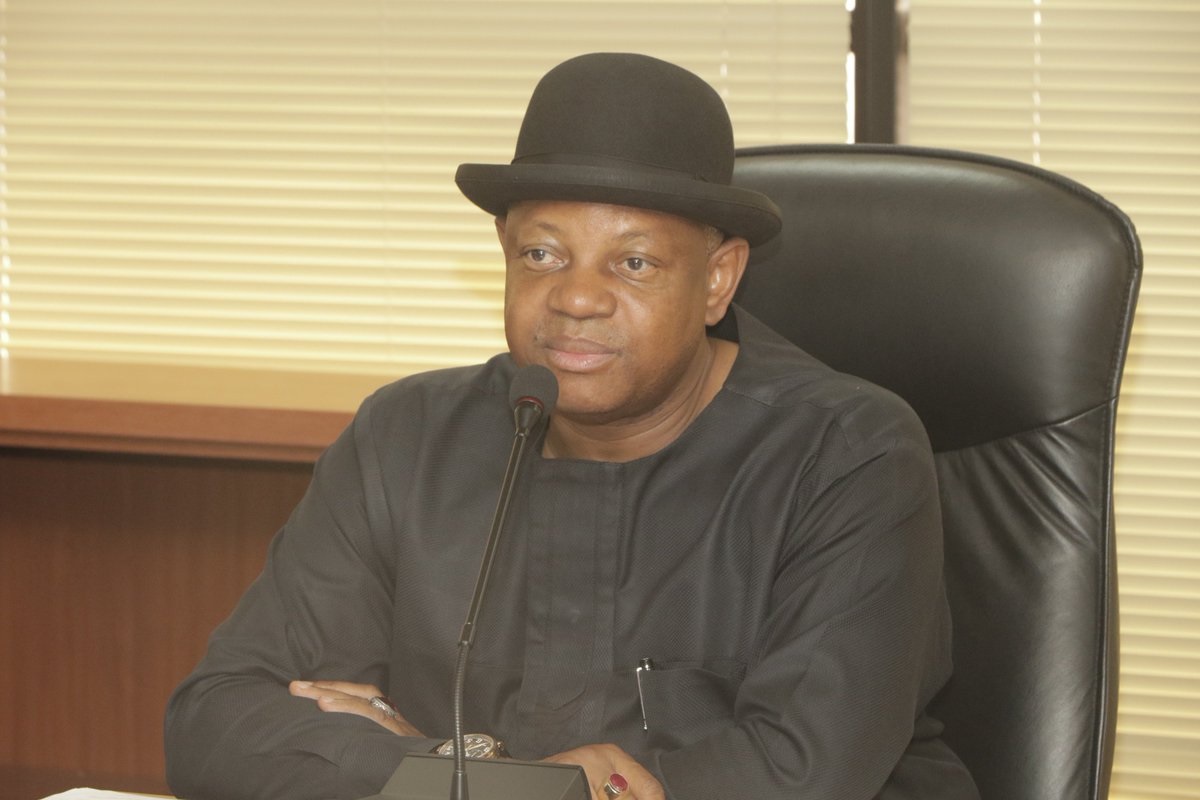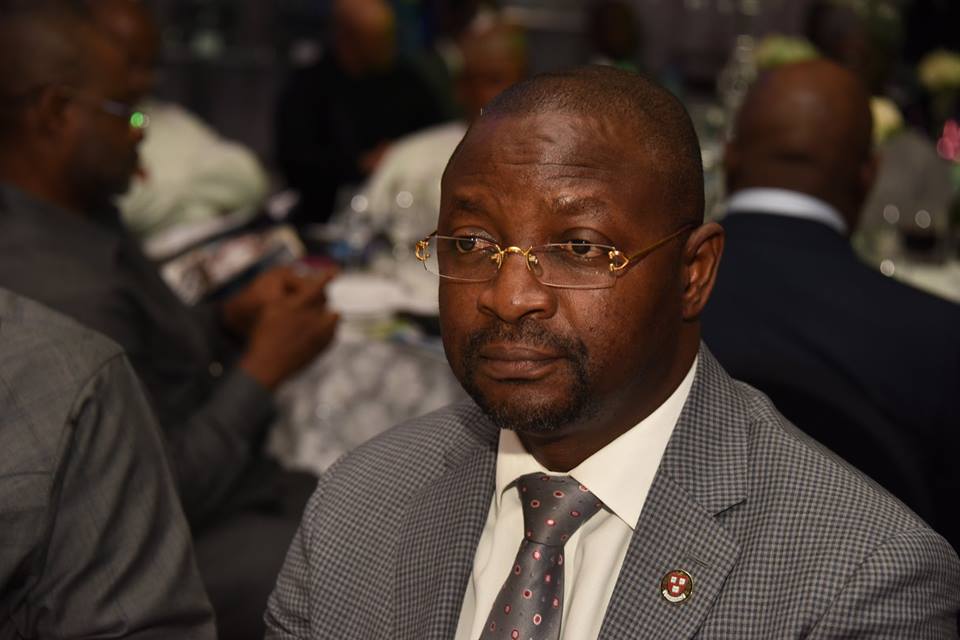President Muhammadu Buhari has advised Nigerians living in South Africa not to operate small businesses if the indigenes will not accept them.
In a joint media briefing with South African President Cyril Ramaphosa on Thursday, Buhari urged Nigerians to abide by the law in any country they choose to settle.
“We have discussed it at great length with the president on one to one basis. For those Nigerians that are here or elsewhere, you can recall what happened in Ghana of recent.
“It’s a question of competition at very low levels where there are barbers or they have small shops and they feel that it should belong exclusively to the indigenous people of that locality or that it is open to people from all over the world.
Advertisement
“I think Nigerians know the stand of the leadership that when you are in Rome, you do what the Romans do. When you in a country, you study the people and the laws and you get yourself a line of business with what the authorities and people accept there.
“If you do anything outside the people’s agreement, eventually they will not accept it. This is a very well known thing. The competition in all countries with the growth of population especially in developing countries is going to be keener.
“It means that our respective security agencies must be very alert. They must infiltrate the community, know their thinking and make sure that they don’t allow violence to escalate.”
Advertisement
In his remarks, Ramaphosa said his administration would create incentives to attract “slightly larger Nigerian companies” to improve job creation and correct the present imbalance of having big South African businesses in Nigeria and smaller Nigerian businesses in South Africa.
“We want to welcome more Nigerian businesses to operate in our space. South Africa has a number of large corporations that operate in Nigerian markets; in the South African market, many of them are small and medium businesses.
“We want to address this imbalance so that we have more slightly larger Nigerian companies coming to operate here and we have various incentives as a government. We will be available to them and make our ease of doing business easier.”
Both countries signed 32 trade and cooperation agreements as part of activities to calm frayed diplomatic nerves.
Advertisement
In September, mobs armed with makeshift weapons attacked businesses and homes owned by foreigners, leading to at least 10 deaths, dozens of injuries and up to 400 arrests.
In response, Nigeria repatriated around 600 of its citizens living in South Africa.
Add a comment

